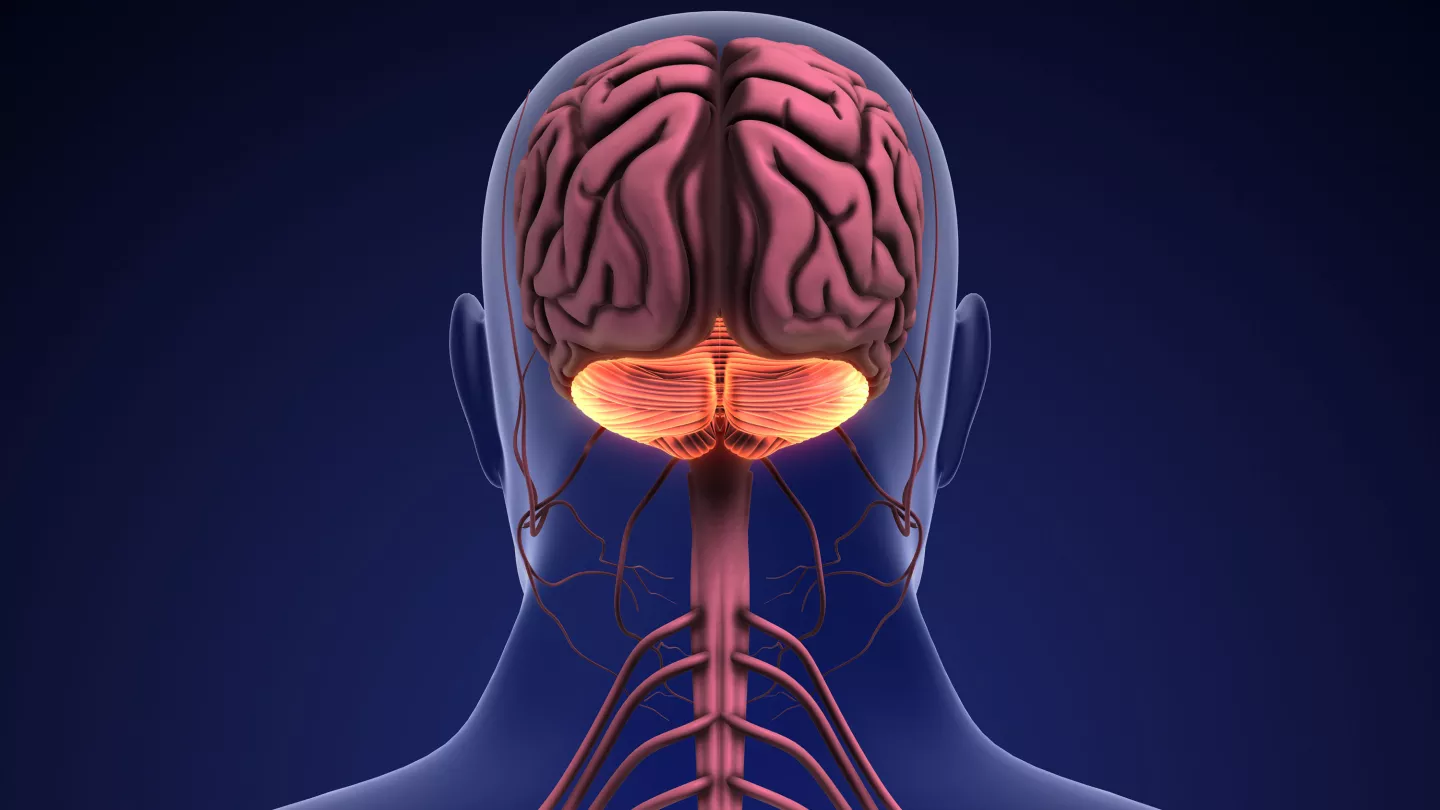News Brief
Decoding How Neuropeptides Influence the Cerebellum
September 25, 2024

The cerebellum, often referred to as the ‘little brain’, performs many vital functions ranging from maintaining balance to facilitating social behavior. The cerebellum must therefore constantly adapt to changing environmental cues and internal states—adaptations regulated by so-called neuromodulator molecules that facilitate social behavior and regulate pain processing and feeding. One group of neuromodulators—neuropeptide hormones including oxytocin—were long thought to play only minor roles in modulating cerebellar function. However, recent large-scale gene expression studies of the mouse cerebellar cortex have revealed many types of neuropeptide receptors in the cerebellum, including oxytocin receptors, suggesting they may profoundly influence cerebellar activity and help it dynamically adapt and communicate with other brain regions.
The National Institutes of Health has awarded Stephanie Rudolph, Ph.D., a five-year, $1.9 million grant to investigate the fundamental cellular and circuit mechanisms by which neuropeptides regulate information processing in the cerebellar cortex. The findings may shed light on the neurodevelopmental, psychiatric, and neurological disorders that can be traced to cerebellar dysfunction, including impairments in social communication and in motor function.
Dr. Rudolph is assistant professor in the Dominick P. Purpura Department of Neuroscience and of psychiatry and behavioral sciences at Einstein. (1R01NS138602-01)



